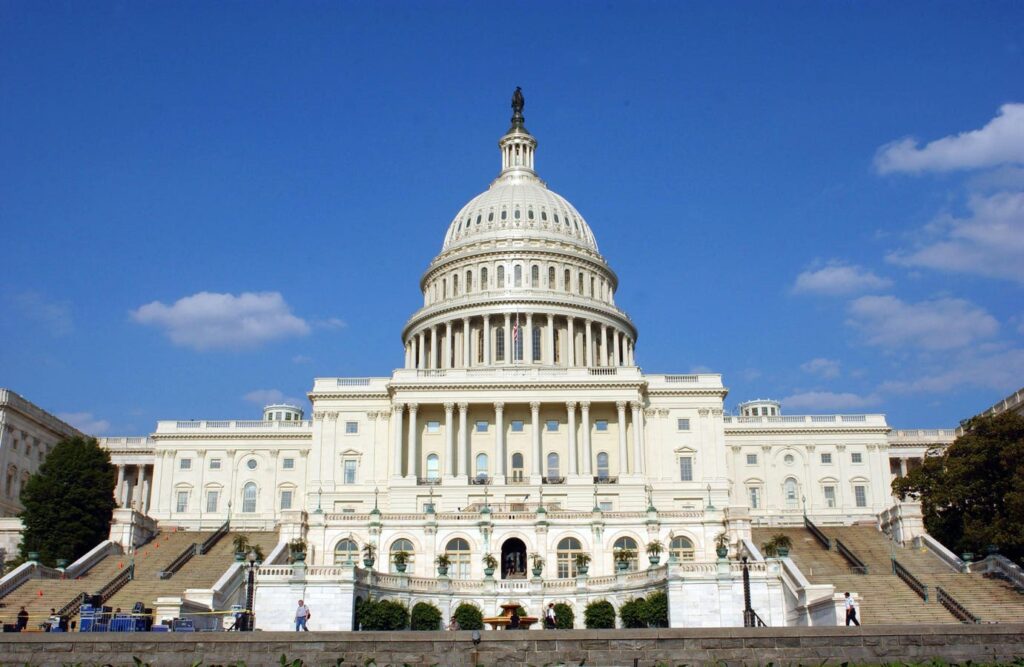The CBO estimates that the One Big Beautiful Bill Act will add $2.4 trillion to the federal deficit over the next decade. While these are only estimates, the group’s analysis is responsible for helping shed light on the economic impacts of proposed legislation. However, many do not know what this group is and what exactly their estimates mean. This comes as Trump publicly disagrees with the estimate and questions the groups assumptions and qualifications. This article discusses what is the CBO. It then provides three key takeaways from their latest report estimating the economic impact of the One Big Beautiful Bill Act.
What Is The CBO?
The CBO was established under the Congressional Budget Act of 1974. A primary focus of this group is to “provide objective, nonpartisan information to support the Congressional budget process and to help the Congress make effective budget and economic policy.” The office works with Congressional committees, particularly the House Ways and Means Committee and the Senate Finance Committee, to help determine the economic impact of their bills.
Each year, the CBO produces about a thousand cost estimates and publishes reports about the economy and economic-related issues. The office employs approximately 275 individuals who often have significant work experience and skills in economic forecasting and modeling. While Congress sets the CBO’s priorities, the group prides itself on being objective, impartial, and nonpartisan. It does not make any policy recommendations and employs a rigorous set of checks and balances to ensure its estimations are fair and unbiased.
3 Key Takeaways From The CBO’s Report On The One Big Beautiful Bill Act
1. A $2.4 Trillion Increase In The Deficit
As ABC News reported, the headline of the CBO’s report was that the impacts of the One Big Beautiful Bill Act would increase the deficit by $2.4 trillion. The way that this works is that the CBO estimates that tax revenues will decline by $3.7 trillion due to, among other things, the renewal of the tax provisions from the Tax Cuts and Jobs Act of 2017, as well as enhanced deductions like a higher state and local income tax deduction for individuals.
Despite these lower tax collections, the CBO estimates that the bill will not pay for itself as spending will only decrease by $1.3 trillion. Many of these spending decreases are coming from making cuts to Medicaid and SNAP, as I previously discussed on Forbes. The combination of the $3.7 trillion in lost tax revenues and the $1.3 trillion in lower expenses leads to the CBO’s estimate of the $2.4 trillion net effect on the deficit.
2. The Estimate Is For The Next 10 Years
The CBO estimates the impact over the next decade for major budgetary legislation like the One Big Beautiful Bill Act. While a $2.4 trillion net impact may seem large, it is important to point out that the projected impacts are over many years. The reports generated by the CBO also break down the impact by provision, allowing policymakers and taxpayers to understand the impact of specific pieces of legislation more directly. For instance, the CBO estimates that the lost tax revenues from not taxing tips will be about $39 billion, whereas the lost revenue from not taxing overtime will be about $124 billion.
While many pieces of this legislation will be costly, the provisions that appear to have the most significant price tag are those extending the tax cuts for individual taxpayers that were passed as part of the Tax Cuts and Jobs Act of 2017, and the estimated impact can be seen in their report each year over the next 10 years.
3. Trump Disagrees With The CBO Report While Others Are Sounding The Alarm
According to The Hill, the administration believes the CBO underestimates the economic growth among bills like the One Big Beautiful Bill Act. In particular, Trump has criticized the CBO for using a 1.8% growth rate, and he even publicly suggested that the group should be using a rate up to five times higher than that. If the CBO underestimates growth, tax revenues may not decline as much as estimated, resulting in a more favorable set of economic outcomes than the CBO predicted.
However, not everybody feels as positive about the One Big Beautiful Bill Act’s financial prospects as Trump. Newsweek reports that Senators like Chuck Schumer and Jodi Ernst have given the bill the nickname the We’re All Going To Die Act (in reference to the removal of many key healthcare programs). Even Trump’s associate, Elon Musk, took to X to call for the bill to be voted down due to its costs, as reported by The New York Times. Thus, while Trump disagrees with the estimate, it appears as though there are plenty who are looking at the CBO report with heightened skepticism about the One Big Beautiful Bill Act’s prospects.
Read the full article here
